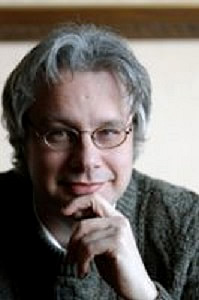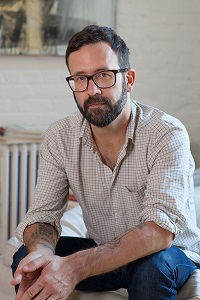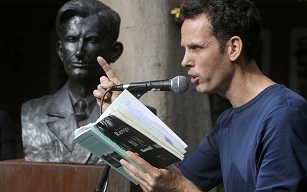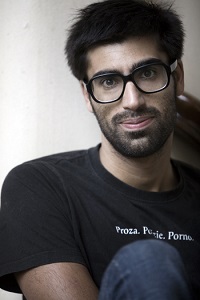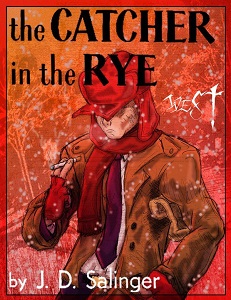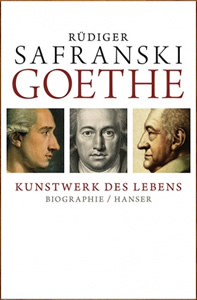Alle bezoekers en mede-bloggers een gelukkig Nieuwjaar!
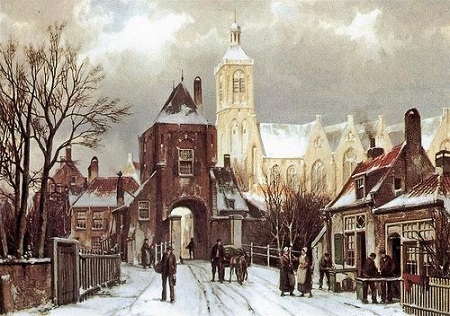
Vianen, Grote Kerk en Landpoort in de winter door Willem Koekoek, 1880
New Year
The New Year dawns again upon the earth,
And all our land re-echoes with its mirth.
From east to west, from north to south, we hear
The sounds of merriment and goodly cheer-
With feast and revelry, with dance and song,
The golden hours slip happily along,
And eyes are bright, and hearts are blithe and gay,
And all seems well upon this New Year Day.
Alas! alas! all is not well; for, oh!
White hands will plant the seeds of sin and woe-
Fair maids, with smiles and glances half divine,
Will lift the muddy glass of poison wine
To manly lips, and plead of them to quaff,
And loud will grow the careless jest and laugh;
And firm resolves, that gird up manly hearts
To brave the devil and withstand his arts,
Will fail before these fiends in forms so sweet,
And they will drain the glass and think it meet.
O shame too deep for tongue or pen to tell!
That woman opens wide the door of hell
For man to enter-woman, who should be
As true as truth and pure as purity.
But when they pass the drunkard in the street,
They lift their robes, lest they shall touch his feet,
And turn from him with scornful eye and lip,
Forgetting that perchance some maiden bade him sip-
Bade him with thrilling glance and tender tone,
Until the deadly habit, mighty grown,
Had mastered all his manhood, and he fell
Lower and lower to the depths of hell.
Go shout aloud fair woman’s shame, O wind!
Tell it to nature, and to all mankind,
To hill and vale, and every forest tree,
To bird and beast, and to the mighty sea;
And let them all unite and sing her shame,
Until, with streaming eyes and cheeks aflame,
She makes a vow, and calls on God to hear,
That evermore her record shall be clear,
And she, with all her strength, will strive to save
Instead of aiding to the drunkard’s grave.

Ella Wheeler Wilcox (5 november 1850 – 30 oktober 1919)
Winter in de Rotary Gardens in Janesville, Wisconsin. Ella Wheeler Wilcox werd geboren in het nabijgelegen Johnstown.
Zie voor de schrijvers van de 1e januari ook mijn drie vorige blogs van vandaag.
